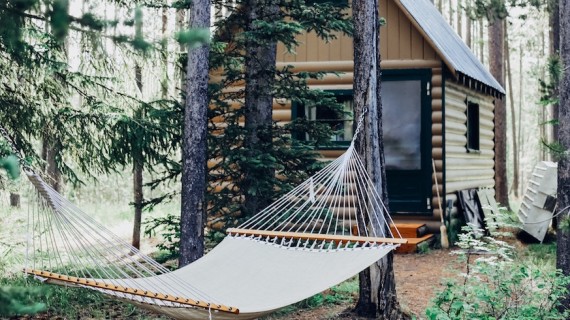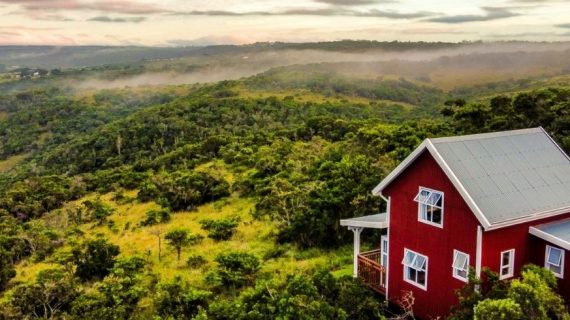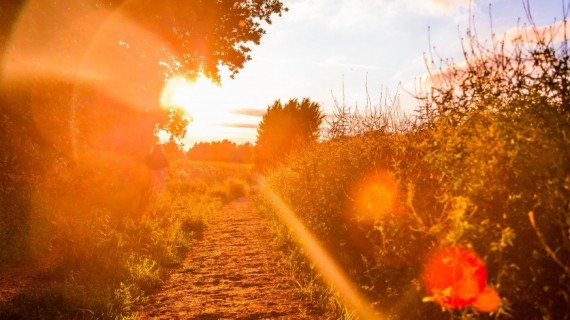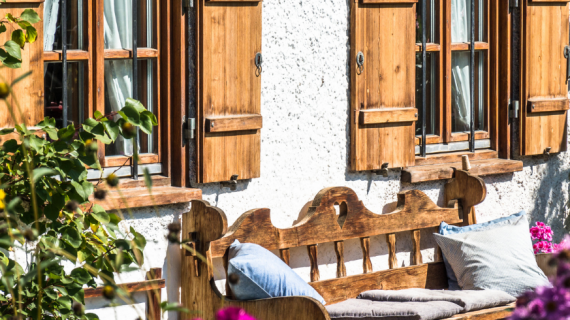Agriturismo la Fattoria dell’Autosufficienza is an applied ecology centre located in the Romagna Apennines, on the borders of the Casentinesi Forest Park. A wonderful place, with breathtaking views and nature that is partly unspoiled.
The farmhouse La Fattoria dell’Autosufficienza is a pearl of rare beauty. It is completely immersed in nature and surrounded by the mountains of the Apennines. It is the perfect place for nature lovers who are looking for a moment of peace and relaxation.
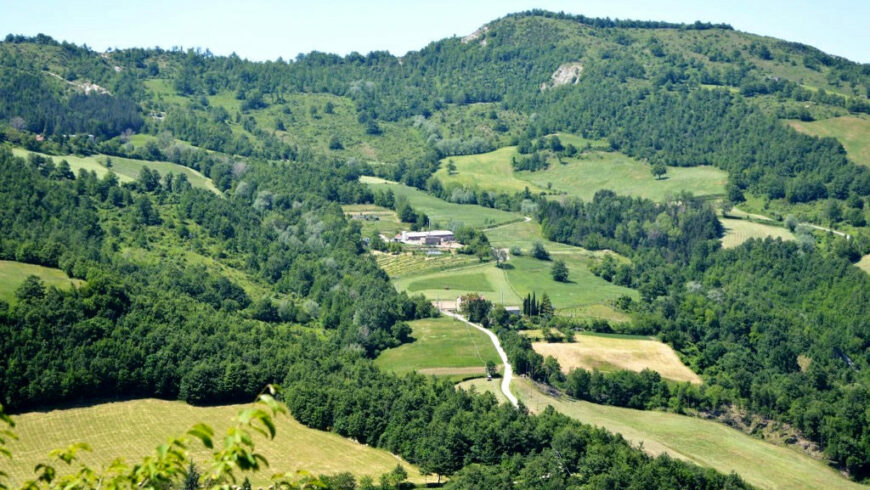
The farm, established in 2009, is located in the Cesenate Appenine, in the territory of the municipality of Bagno di Romagna. The project, which was born with the idea of spreading a new virtuous model of living that respects the environment, is based on 4 pillars:
- Food self-sufficiency
- Energy self-sufficiency & biobuilding
- Ecological and holistic education
- Ecotourism and health
This is the work team that takes care of the operation of the Fattoria dell’Autosufficienza every day.
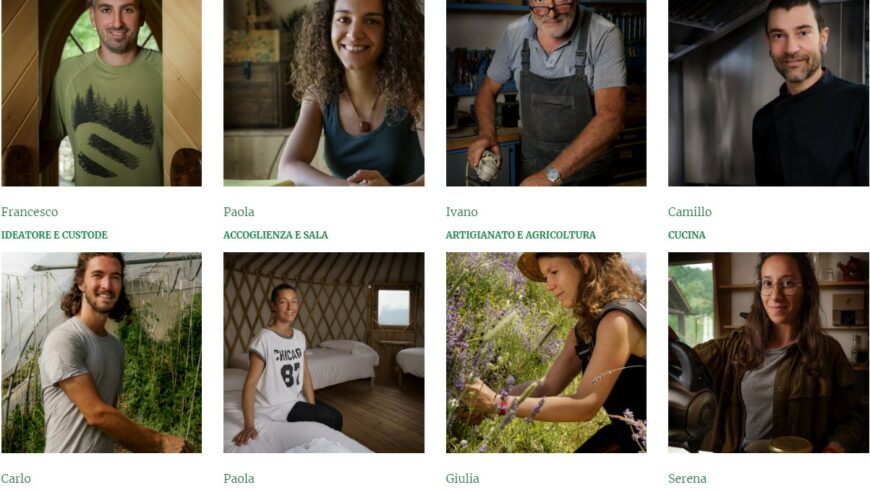
We had the pleasure of interviewing Francesco Rosso, owner of Fattoria dell’Autosufficienza. Here is what he told us:
1. How was the Fattoria dell’Autosufficienza born?
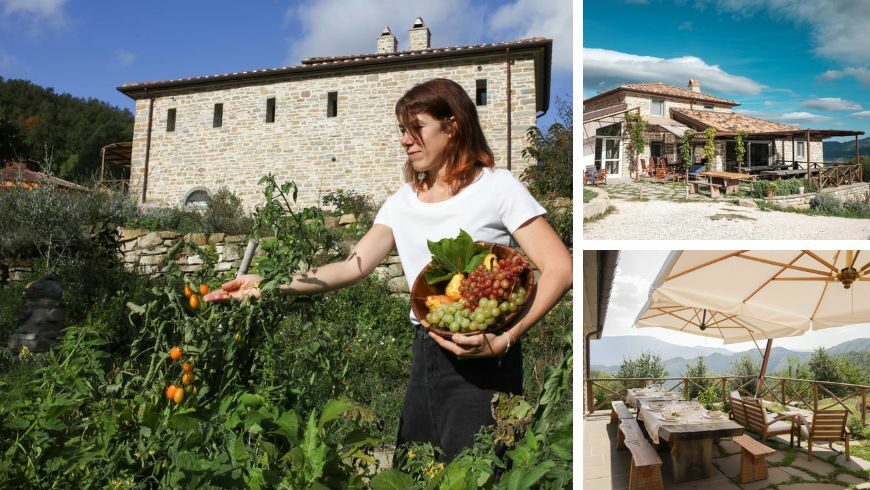
The Fattoria dell’Autosufficienza was initially born as a plan B for my family. We realized how the human being, particularly the ‘western’ human being, was becoming weaker and weaker every year. For three hundred thousand years we had been able to survive in self-sufficiency with what our environment offered us. In recent years we have delegated our ability to survive to a small group of multinational corporations that provide us water, food, energy, heat, building materials, medicines, and everything that keeps us alive. Our ability to adapt to widely anticipated epochal changes such as economic, environmental, and energy crises is very low.

So in 2009, we decided to buy 70ha of land that had been uninhabited for 50 years, where the land had not been cultivated for 20 years, but which was rich in quality water, clean air, unspoiled soil, forests, and which offered the possibility of building.
Our meeting with permaculture made us join the three ethics: caring for the land, for people, and for the future. So the project became much more than the initial idea. We started out with the idea of creating Noah’s ark for our family, while today Fattoria dell’Autosufficienza has become a place of hospitality, training, experimentation, and inspiration for those who are looking for a concrete alternative to the lifestyle that is driving us to self-destruction. Today Fattoria dell’Autosufficienza represents the change we want to see in the world.
2. What good sustainability practices have you adopted?
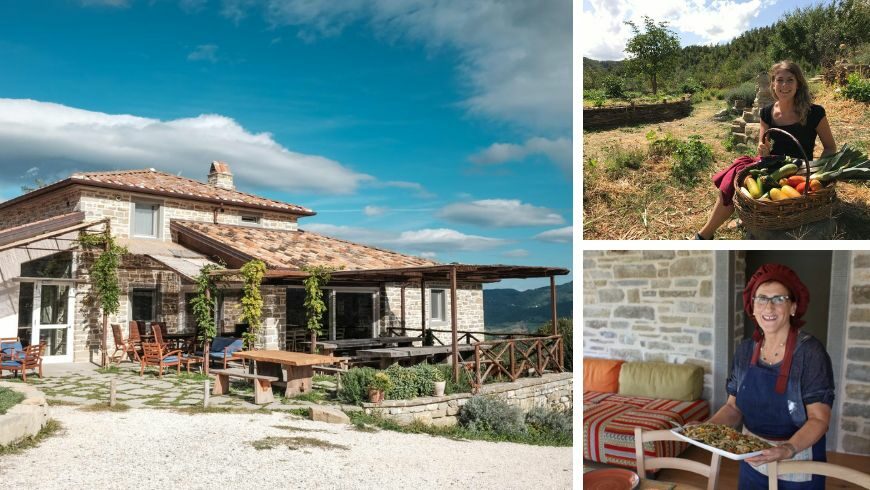
There are many practices we have implemented to guarantee an eco-friendly experience for our guests. Our facilities are energy-saving and with natural materials such as earth, straw, chalk and wood. The furniture used is self-made from recycled wood and we also use natural oils and varnishes. The mattresses are made of natural latex and the pillows and blankets are organic. The lighting system adopted is 100% LED.
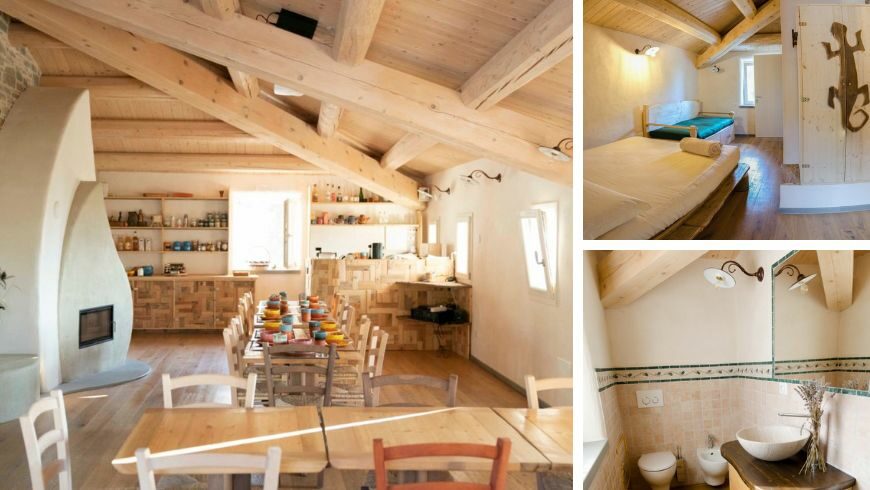
We have provided charging stations for electric cars and we have adopted photovoltaic systems for electricity production with 66 kW of battery storage. We use solar panels for hot water and, for the heating of all buildings, we use self-produced wood. The situation is similar for the food, which is self-produced in an organic way. In fact, our restaurant is 100% organic and vegetarian. With regard to the water system, we have a spring catchment system and a fito-purification system with black and grey water recovery. We also have a bio-pool, which does not use salts or chlorine and with reduced water waste.
In addition, there is rainwater collection on cisterns and fairly large lakes. Flow reducers have been installed in the taps to infiltrate water into the ground and prevent erosion, and swales and terracing have been built. Lastly, we have identified rewilding areas where we let nature live undisturbed.
But we are still at the beginning…
3. What do your guests appreciate most?
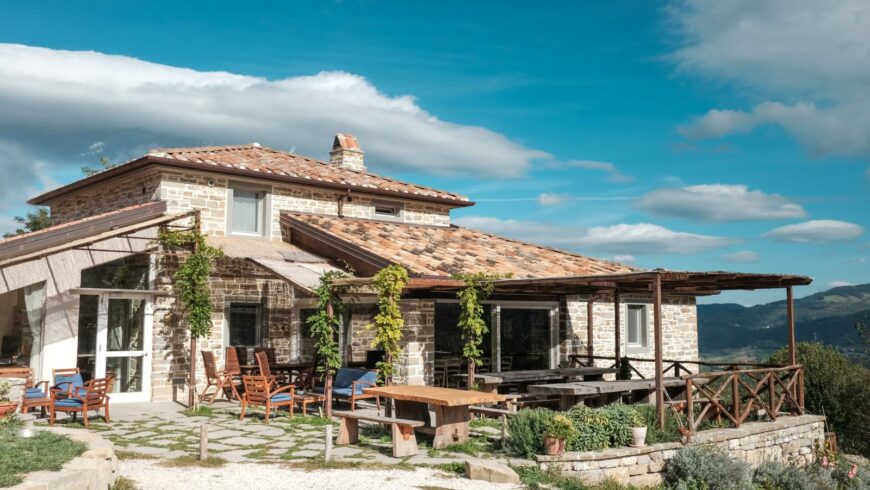
The beauty and coherence of the place. In addition, guests are very enthusiastic about the bio-pool, which was open in 2022. It is built on 3 levels and there is a delicate natural purification and oxygenation system affected by bacteria, plants, gravel, and swirls of moving water.
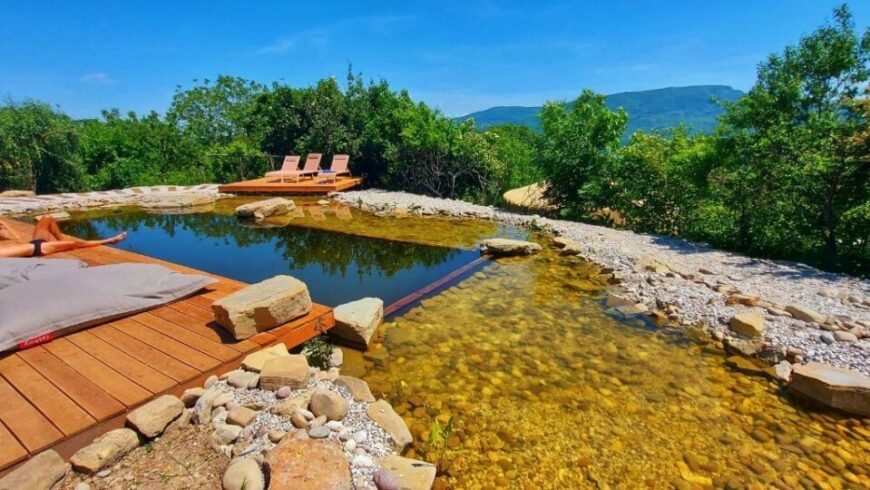
Our bio-pool is ecological because, compared to traditional pools, there is no cement in the construction. In addition, there is no produced waste water with chemicals harmful to humans and the environment. Furthermore, it favors biodiversity and the enrichment of living space for native flora and fauna, and during the cold season, it does not require a cover.
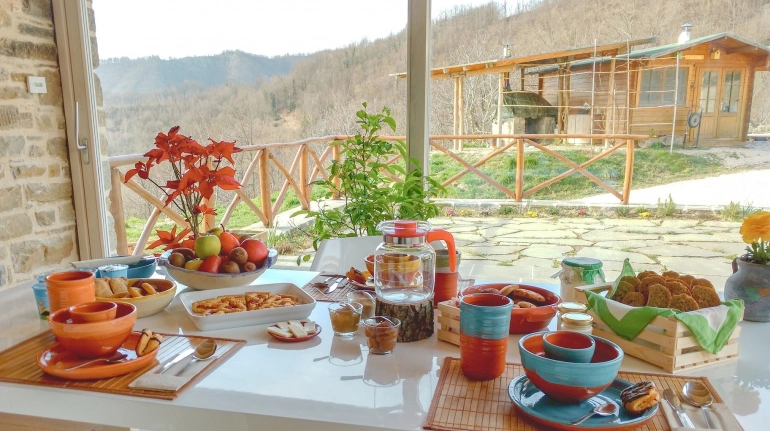
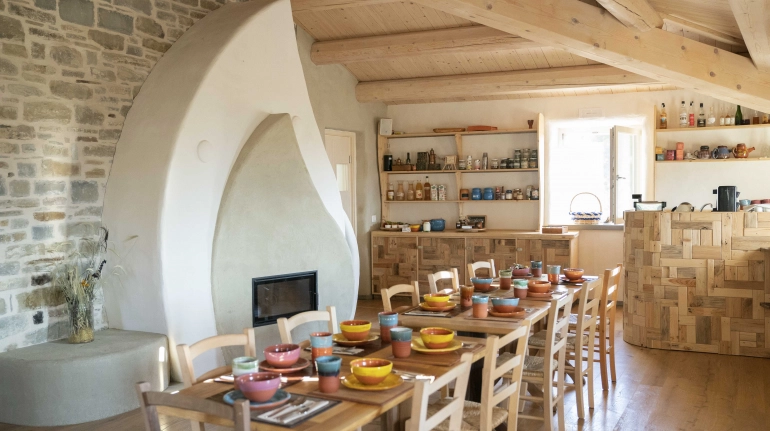
Also breakfast is a service much appreciated by our guests. In fact, the opportunity to taste fresh local produce gives the guest a positive memory of the experience.
4. What green experiences do you recommend in the area?
In the upper Savio Valley there are different virtuous realities. These structures belong to people who have decided to return to living in contact with nature, in a more sustainable and careful way.
There are those who made this choice 30-40 years ago and those who have only recently started. There are those who have dedicated themselves to organic farming, those who have put the principles of permaculture into practice, those who have specialized in herbal practices or handicrafts, and those who have decided to breed animals in a healthy way have dedicated to food production.
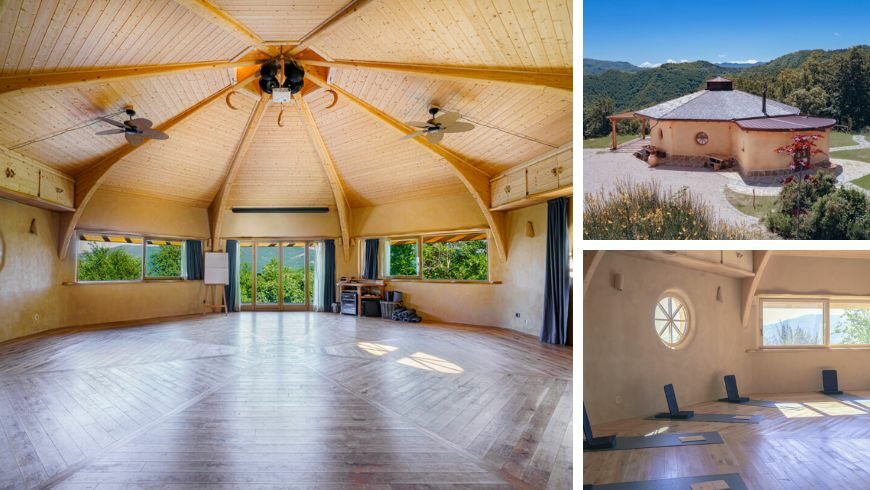
In addition, there are those who decided to design and experiment with educational models in nature and those who have made sustainable hospitality their mission… So, there are courageous pioneers! Their doors are open and their willingness to show and tell their stories is unique.
With our guide, it is possible to take a tour of these realities, to understand that it is really possible to become the change we want to see in the world.
5. What does it mean for you to be part of Ecobnb?
Being part of a community of accommodation facilities of various kinds that in a more or less advanced way are following a path towards environmental sustainability.
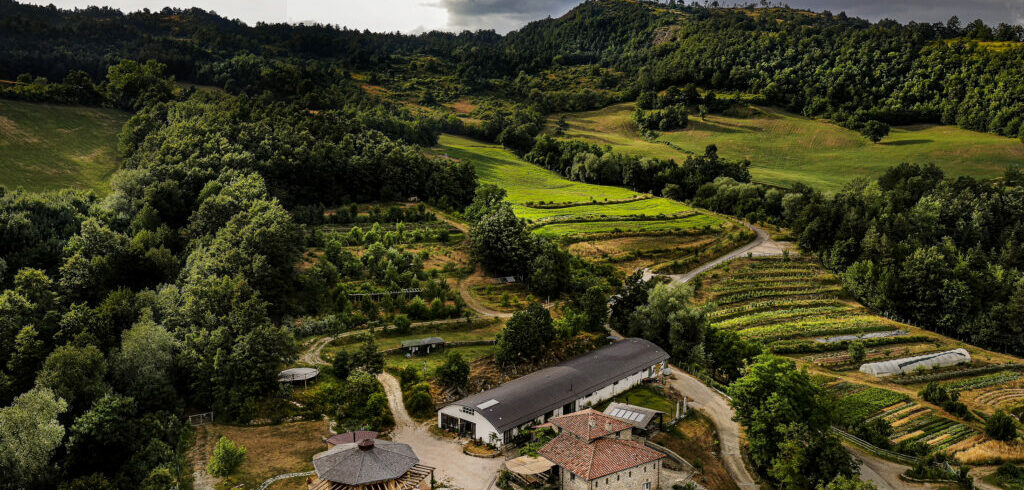
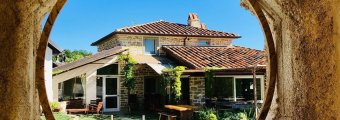 La Fattoria dell'Autosufficienza – Green Farm house in Bagno di Romagna, Forlì-Cesena, Emilia-Romagna, IT
La Fattoria dell'Autosufficienza – Green Farm house in Bagno di Romagna, Forlì-Cesena, Emilia-Romagna, IT 